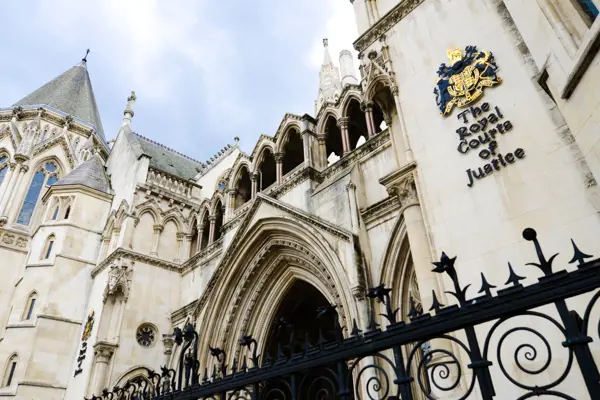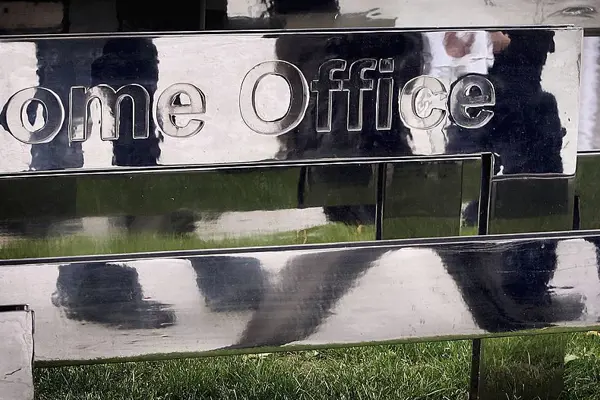Family statement following inquest of Stephen Appleton
The Coroner's findings following the inquest into the death of Stephen Appleton, 51, from Windsor were read in open court today.
Posted on 18 June 2019
Assistant Coroner for Berkshire Alison McCormick concluded that Stephen’s death on 12th April 2018 was a result of suicide while suffering from mental illness and alcohol dependence.
The coroner commented in her conclusion that although Stephen was in contact with mental health and alcohol dependency services in the months before his death, he was not provided with counselling or detoxification. He died whilst still waiting for this treatment.
The inquest was held at Reading Coroner’s Court on 12 and 13 February and 16 May 2019. Stephen’s partner Sandra Smith was represented at the inquest by solicitor Nicola Wainwright of law firm Leigh Day.
Sandra, 54, made a statement following the conclusion of the inquest into Stephen’s death:
“I believe Stephen was let down by our local mental health service. He was depressed and anxious but sought help. However, after weeks of seeking help I believe he gave up hope when that help could not be found.
“His symptoms started only about a year before his death.
“Before that he was full of life. He was loved by his family and friends and we loved him. He was charismatic, social and had a ‘just do it’ attitude. He loved travel and adventure – he raced cars and climbed mountains in Pakistan and South America. He ran marathons, enjoyed skiing and surfing.
“Whilst Stephen was ill we sought help for him from his GP and from Berkshire mental health services. Despite repeated cries for help he was never provided with the help he needed which I believe could have saved his life.
“He was only assessed over the phone and never seen by a qualified mental health professional face to face. We were passed from one person to the next and left to try to determine the right service for him. I believe that if Stephen had undergone a full face to face assessment the full nature and extent of his psychiatric illness would have been established.
“He was told help would come, but it did not. He was promised access to Talking Therapies, but the first appointment was two months away.
“Even when he was planning and rehearsing his method of killing himself and I was desperately trying to get help no one seemed overly concerned. No one offered the help that Stephen and I needed there and then. We were still waiting for a call back, a talking therapies appointment and detoxification treatment when he took his own life. I believe that by then Stephen should have been admitted to hospital for his own safety.
“I know the coroner had no choice but to reach a conclusion of suicide, but that one word could never tell the whole story.
“Our family has lost Stephen, the father and partner we loved and the person who supported us through everything. I believe he could have been saved with the right treatment. Instead, he was left suffering whilst his symptoms of paranoia, fear and false beliefs worsened. We will never come to terms with our loss.
“I am pleased that the Coroner conducted a thorough inquiry and set out her findings in detail. Her inquiry revealed that even when Stephen did mention he had had thought of harming himself the mental health nurse he was speaking to did not ask any further questions to probe the nature and extent of Stephen’s thoughts. The Coroner suggested that Stephen was not willing to open up but he was actively seeking help and I believe if he had been properly assessed he would have talked because he was desperate to get better.
“I believe the mental health services let us down and the way they operate means that patients such as Stephen are not safe.
“The Coroner made a Preventing Future Deaths Report with regards to the lack of support for patients like Stephen who have been recommended for treatment but have to wait to receive it. In Stephen’s case he was still waiting when he died. I agree this needs to change so that other patients do not suffer like Stephen did. Waiting two months for help is just not acceptable.”
Sandra’s lawyer Nicola Wainwright of law firm Leigh Day added:
“It has been incredibly hard for Sandra and all of Stephen’s family to have to go through the inquest process but they were determined to try to understand why, in their view, Stephen did not obtain the mental health treatment he needed when he was trying his best to get help.
“The Coroner referred to the fact that Stephen was not seen face to face by anyone in the mental health team, which was recognised as a care and service delivery problem by Berkshire Healthcare NHS Foundation Trust and which Sandy believes was part of the reason that Stephen did not get the help he needed.
“The Coroner also commented that the Trust psychiatrist seemed to suggest that the right thing to do would have been to contact the Crisis Team, when Sandy reported Stephen was planning the method to kill himself, but no one in the mental health service did. The Trust referred to a ‘perceived aversion’ to such referrals, which is very concerning in what we all hope would be a joined up mental health service working together to help those with mental illness.
“Whilst no changes can bring Stephen back I hope that Sandy’s efforts and the investigation carried out by the Coroner will lead to improvements in the mental health care other patients receive in the future.”

